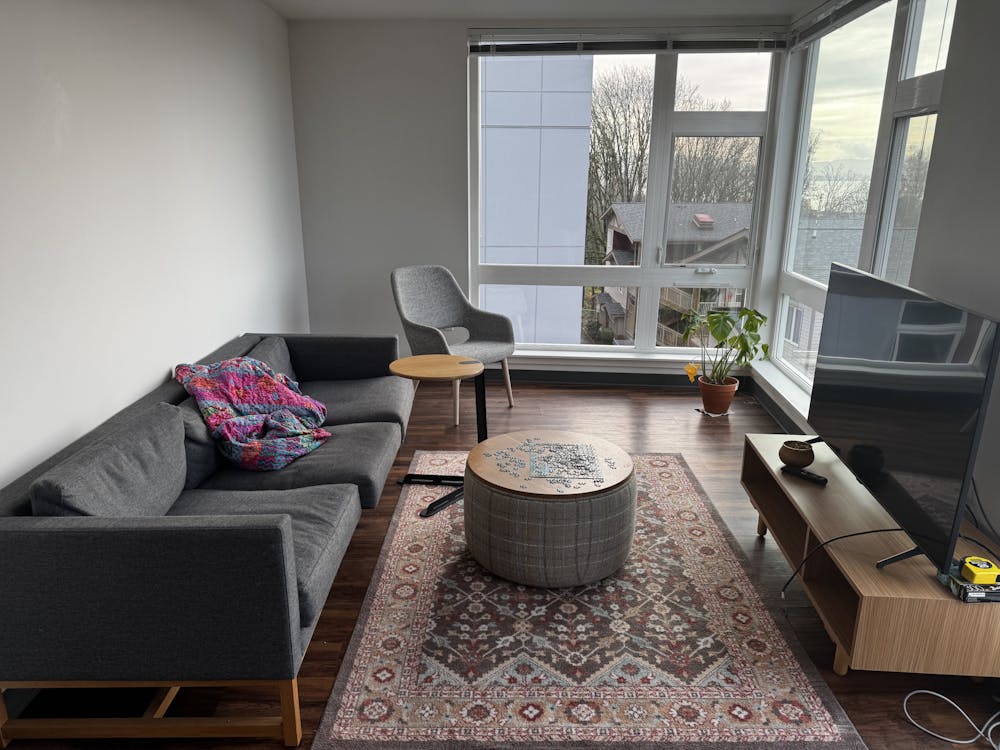Communal living isn’t perfect, but we all do it at one point or another — to cut costs, or to stave off the intimidating experience of living life on your own. Still, there are many things to consider when seeking out a shared living space.
The Western Washington University housing website includes a helpful list of things to keep in mind when figuring out what housing option will best support you. For on-campus housing, students have the opportunity to select their top building types, room layouts, preferred gender to live with and even have opportunities to seek out international and themed communities.
“[We want to help] our students understand that the space they live, study, wake up and go to bed in, truly has a huge impact on their mental health,” said Charmayne Adams, assistant dean of Student Health, Counseling and Wellness at Gonzaga University.
At Gonzaga, Adams focuses on the importance of making the college living experience a healthy one that prioritizes students' health as well as their relationships with one another.
“Some of the tips I have are having really good, clear communication with roommates, [and] making sure you are talking about things before they become an issue,” Adams said. “Things like, ‘Am I a night owl or a morning person?’ ‘Do I prefer to clean things as soon as a mess is made or am I the type of person who is okay with leaving [it]?’”
Western contributes to making communal living a safe space by setting community standards. Students living on campus are provided with a housing agreement, featuring conduct procedures and a detailed table of contents outlining rules, regulations and procedures for various questions and concerns that may arise.
Holly Allar, Western’s director of residence life, said residents and apartment advisors play in the scheme of communal living and are essential to on-campus living.
RAs and AAs at Western are trained to be leaders and mentors for students living on campus. Their responsibilities include community development, general support, residential curriculum, on-call and crisis response, role-modeling and ethical behavior.
“A lot of common problems come from the first chance of having a different layer of independence and figuring out how to operate in the world,” Allar said.
RA’s and AA’s create a structure in the on-campus living community that helps support students move through this change, but there are still challenges that come with any form of communal living.
“Talk as early as possible about living habits and expectations,” Allar said. “The most wonderful of people could live together but have very different habits and ways they like to live. Having a level of empathy and respect for your roommate, no matter who they are or what their lifestyle/environment is — that is helpful for everybody.”
For students living off campus this may not be applicable — leases may vary and students may rely more on establishing these standards with their roommates themselves.
Fourth-year geology student Ananya Freeman currently lives off campus in an apartment with three other roommates. All of them originally leased out their rooms individually.
“Each person has a different way of living and if it’s a communal space it does get displayed sometimes,” Freeman said. “All of us have school, plans and whatnot that can come before doing chores and housekeeping.”
According to Freeman, she relies heavily on communication with her roommates, whether that's through their group chat or reminders and notes made on their communal whiteboard. She stresses the importance of communicating with roommates positively and collectively.
“Living with roommates when you get along with them is so fun,” Freeman said.”Having people to chat with, catching up with after coming home from a stressful day and having something to look forward to or someone to do something with.”
During the transition into communal living, students must recognize their values to incorporate them into their new experiences. Everyone comes from a different background and that can be challenging, but acknowledging and confronting differences are a normal part of the transition.
“Conflict is a normal piece of living with another person, it doesn't necessarily mean it's a bad or terrible thing,” said Allar.

Shelves, organized by bins, are pictured in Bellingham, Wash on Thursday, Nov. 14, 2024. These bins help maintain a clean and separated look in a shared bathroom. // Photo by Madrona Raney

A fridge is pictured, filled to the brim, in Bellingham, Wash. on Thursday, Nov. 14, 2024. This is what it looks like to live and cook in an apartment with four other people. // Photo by Madrona Raney
Madrona Raney (she/her), is a reporter for campus life. She is a junior at WWU studying News/Editorial Journalism. She did her first year at Point Loma Nazarene University and was a reporter for them on The Point. During her free time, she enjoys traveling, being outside, making coffee, snowboarding, boating and spending time with friends and family. You can reach her at madronaraney.thefront@gmail.com.






